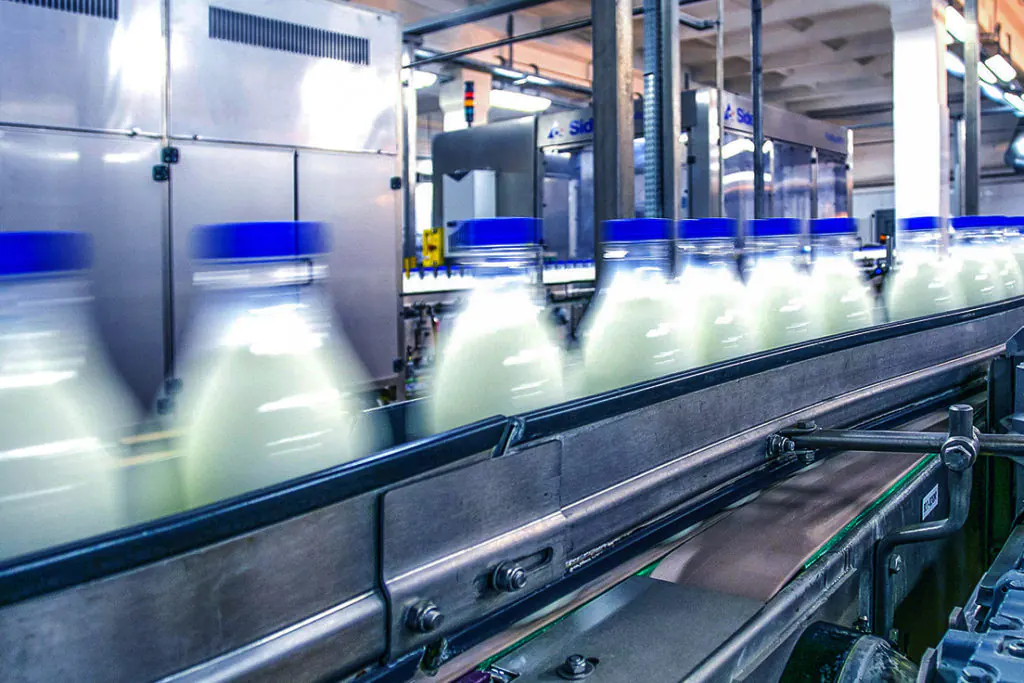
COVID-19 continues to affect the country and the world. The pandemic has affected nearly every industry: the real estate industry has taken a hit, the retail industry has seen a major impact, and the overall financial markets have been affected. But the food and beverage industry has undergone significant changes.
The food and beverage industry can’t just shut down; they have to keep providing for the nation. Even in the face of extended employee absences and challenges related to the pandemic, the food and beverage industry has to be more productive than ever to meet the demands of consumers.
Some food manufacturers and supermarkets have seen increased sales as consumers stockpile items like dried beans, canned meat, rice, and powdered milk products. Grocery retailers have been working around the clock to keep the shelves stocked for consumers. “We believe that everyone deserves to have access to fresh, affordable food and essentials, especially in times of uncertainty,” Kroger CEO Rodney McMullen told Talk Business & Politics.
United Natural Foods, Inc. Sales Surge
Another example of this increase in demand can be seen by looking at national food distributor, United Natural Foods, Inc. which has seen double-digit year-over-year sales in recent weeks as CEO Steve Spinner told Supermarket News. “Our growth related to COVID-19 has been significant. UNFI’s last two weeks of sales has resembled our prior year’s Thanksgiving holiday week — with the difference being we, our suppliers and our customers did not have the lead time required to adequately prepare,” Spinner said.
Today, UNFI announced the establishment of safety protocols as well as incentives that have been provided to the front line distribution center associates who are providing the US with “essential services during the COVID-19 national state of emergency.”
Among the new protocols UNFI is putting in place are:
- A Temporary State of Emergency Bonus of $2 per hour through March 31 for part-time and full-time direct labor associates and also drivers
- Attendance policies and productivity expectations will be adapted to ensure that the quality and safety of the food supply is maintained
- Increased safety measures for warehouse associates and drivers
- 14 additional days paid sick leave for any associates who are diagnosed with COVID-19
- 14 days of additional paid leave in the event that a facility is closed due to COVID-19
UNFI is not the only company within the food and beverage industry that is offering incentives for their employees during this time of such increased demand. In addition, many companies like Uber Eats and Sweetgreen are offering free deliveries to consumers and free meals for medical workers. Throughout the food and beverage industry, companies are doing whatever it takes to help each other get through this health crisis.
Decreased Travel and Closed Factories
The Swiss multinational food and drink conglomerate, Nestlé, has halted all business travel to Asia and Italy as a result of the outbreak of COVID-19. In a statement, the company said, “We have asked all of our employees worldwide not to travel for business purposes.” Another company that halted travel was Cargill, the global food conglomerate also announced that it had banned travel.
The French-based beverage company, Danone, on the other hand, announced that it closed its factory in Wuhan, China as a response to the COVID-19 outbreak. The company recently said in a statement, “While we cannot currently predict the duration and extent of the impact of [the coronavirus], we remain extremely vigilant and are closely monitoring the situation every day, working hand in hand with the local authorities.”
Other Safety Measures
Impossible Foods, Inc., a company that develops plant-based substitutes for meat products, has also taken aggressive measures for the health and safety of its employees including:
- work-from-home policies for all workers who are able to telecommute through the end of April
- strict restrictions on visitors to company facilities and co-manufacturing partners
- a ban on all business travel, both nationally and internationally
- deep cleaning and daily sanitizing of all workplaces
Should the Food and Beverage Industry Do More to Reassure the Public?
All across the country, people are flocking to grocery stores, panic buying products like toilet paper, hand sanitizer, and food. Fights have broken out, lines have been extremely long, and a sense of hysteria has overtaken the American public.
As this article from Forbes points out, some critics have said the food and beverage industry is not doing enough to reassure the public that we have enough food. “What will help is strong reassurance – not only from our political leaders, but also from the companies that make the critical supplies that will get us through the pandemic,” says Hank Cardello, a contributor for Forbes.
A few companies within the industry have recently stepped up, however. Mark Clouse, Campbell Soup CEO, announced on March 4th that production of soup would be increased, and Giant Eagle, an Ohio supermarket chain, reassured customers that product is being delivered, and their stores will remain open.
More companies within the industry need to follow their example. Food and beverage manufacturers need to share their specific plans for cranking up production and reassure the American public that there won’t be a food shortage as we navigate this pandemic. As we reflect on the way food and beverage companies are handling the crisis, it’s clear that the majority of them have taken the necessary precautions to ensure both higher production volume and employee safety. But will these companies ignore the hysteria and panic many people are feeling now? Or will they issue statements to assuage the public? We can only hope for the latter.

